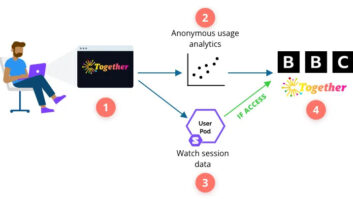
The findings of a review into the running of the BBC have been made public. Following a five-month consultation period with the BBC Executive and Ofcom, among other parties, Sir David Clementi, who led the review, concluded that “there should be a fundamental reform of the system of governance and regulation for the BBC.”
There are currently three key groups that make up this system at the BBC. The BBC Executive, which runs the day-to-day activities of the BBC; the regulator Ofcom, which is also responsible for the wider broadcast and telecoms industries; and the BBC Trust, the sovereign body which has overall responsibility for the strategic direction of the Corporation, acts as ‘steward of the licence fee’, and holds the BBC Executive to account. At a press briefing this week Clementi argued that this model is “flawed”, and needs to be replaced. His report, which forms part of the government’s review of the BBC’s Royal Charter, recommends that regulatory oversight of the BBC should be passed to Ofcom and that the Trust should be disbanded and replaced by a single unitary board comprised of a majority of non-executive directors.
Clementi argued that there needs to be a more distinct divide between governance and regulation at the broadcaster, a point which was according to Clementi was accepted by the Trust in his discussions with its members. The new board should be led by a non-executive chair, and the time devoted to this role should be “considerable” and “more than expected of usual non-executives of boards.” The quality of people who serve on the board, he continued, will determine the future success of the BBC. The board will be accountable for the BBC and will speak for it activities, the report recommends.
Clementi argued that it is common for “distinction between operational and strategic breaks down in the face of events” and the interests of accountability would be better served by a model in which bodies have clear responsibilities. “Accountability is not a separate function, but an inherent part of good regulation”, he added.
Recommending a completely external regulator in Ofcom would provide this required distinction. The body is already charged with operating in the public interest, argued Clementi, and has the capacity to look at the BBC in the context of the market as a whole. It has “scale and credibility” as well as “considerable resources” and would provide “a strong regulator to match a strong BBC board.” Serving the interests of citizens would be at the fore, and having a single regulator, rather than splitting these powers, would provide “clarity that a public body like the BBC deserves.”
Despite calling the current structure of the public broadcaster “flawed” and a “mistake”, Clementi did accept that the Trust has done some good work and that it is not “flawed in terms of individuals”, it is just that these individuals were set “an impossible task” ten years ago. The BBC Board and Trust have had some hard issues to deal with, especially in last few years, with scandals including high executive pay and cases of historic child abuse. Has the flawed structure contributed to such scandals? Clementi pointed out that the issues around Saville occurred in the 1970s and ‘80s, before the creation of the Trust. As for the issues around remuneration, Clementi himself asked “which board is responsible?” and followed with the assertion that “if you have a single board with good governance systems, you know who’s responsible?” The creation of a unitary board, which will be responsible for the actions of the BBC means “there will be no hiding places”.
Ofcom already has powers to fine the BBC – which it exercised in 2009, when the broadcaster paid £150,000 after two episodes of the Russell Brand radio show breached the Broadcasting Code – so how will increasing its powers over the BBC alter the current relationship? In some regulatory systems, relationships can be “too adversarial or too cosy”, said Clementi. He would expect that [Ofcom] “won’t bash the BBC for the sake of it” but would retain a tough stance, he said. He hopes the relationship between the regulator and broadcaster would be one of “mutual respect”.
Clementi recommends that the new board be half appointed by the government – including the board’s chair – and half by a nominations committee. Currently, the director-general is chairman of the Executive Board, as well as chief executive and editor-in-chief of the BBC, and is appointed by the BBC Trust. The Board is made up of executive directors from within the BBC and a number of non-executive directors. In terms of the new chairman, Clementi is “disinclined to say” what kind of candidate he hopes will assume the role. Experience running a big business is a must, however, and he views the position as “a full time job”.
Clementi has presented his findings to secretary of state for Culture, Media and Sport, John Whittingdale, to feed into the ongoing BBC Charter Review process. Proposals for charter renewal were originally intended for publication this spring, however, it was reported this week that this may be delayed until after the EU referendum in June.







